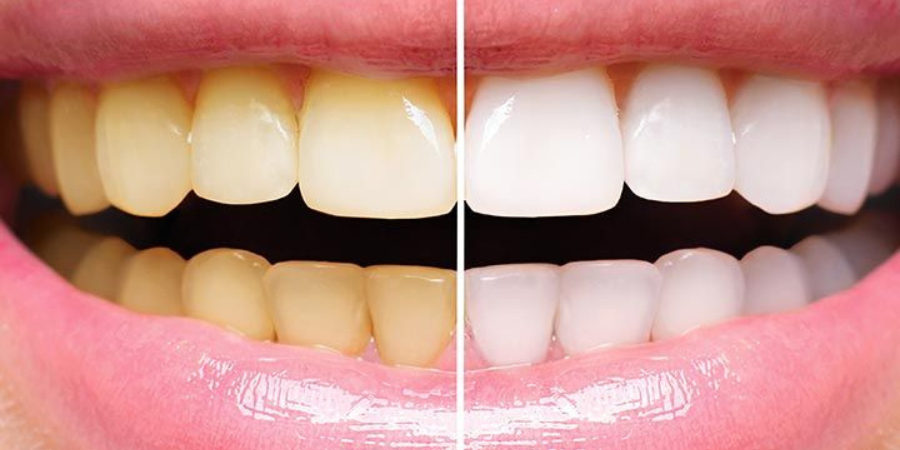A bright, white smile is often associated with health, confidence, and beauty. As a result, teeth whitening has become one of the most popular cosmetic dental treatments in recent years. Whether it’s through professional in-office procedures or over-the-counter kits, people everywhere are seeking ways to remove stains and achieve a dazzling smile. But this growing trend brings up an important question: Is teeth whitening safe and effective?
Let’s explore how teeth whitening works, what makes it safe, potential side effects, and how effective various whitening methods really are.
What Is Teeth Whitening?
Teeth whitening is the process of lightening the natural color of your teeth without removing any of the tooth’s surface. It typically involves the use of bleaching agents—usually hydrogen peroxide or carbamide peroxide—that break down stains into smaller particles, making the teeth appear whiter and brighter.
There are several methods available:
- Professional whitening by a dentist
- At-home whitening trays provided by your dentist
- Over-the-counter whitening strips, gels, and toothpaste
Is Teeth Whitening Safe?
In general, teeth whitening is safe when done correctly and under the guidance of a dental professional. The American Dental Association (ADA) has approved many whitening products, ensuring they meet specific safety and effectiveness standards.
Here’s why whitening is considered safe:
- Regulated Ingredients: Most whitening products use safe concentrations of hydrogen peroxide or carbamide peroxide.
- Protective Measures: Dentists take precautions to protect your gums and other soft tissues during in-office treatments.
- Supervision: When done professionally, dentists monitor the process to avoid over-bleaching or sensitivity.
However, teeth whitening is not for everyone. Individuals with gum disease, worn enamel, cavities, or hypersensitive teeth should consult their dentist before undergoing treatment. Also, whitening is not effective on crowns, veneers, or fillings.
Potential Side Effects of Teeth Whitening
While generally safe, teeth whitening may cause temporary side effects in some individuals. These include:
- Tooth Sensitivity
After whitening, you may notice increased sensitivity to hot or cold. This happens because the whitening agents temporarily open the pores in your enamel. The sensitivity usually goes away within a few days.
Tip: Use toothpaste designed for sensitive teeth and avoid very hot or cold foods right after treatment.
- Gum Irritation
If the whitening gel comes into contact with your gums, it may cause irritation or a burning sensation. Professional treatments often involve protective barriers to prevent this.
- Uneven Whitening
If you have fillings, crowns, or dental bonding, they won’t respond to whitening agents the same way as your natural teeth, which may result in uneven color.
How Effective Is Teeth Whitening?
The effectiveness of teeth whitening depends on several factors, including the method used and the cause of tooth discoloration.
- Professional Whitening (In-Office)
This method offers the most dramatic and fastest results. Dentists use high-concentration whitening agents and often pair them with LED light or laser to accelerate the process. Most patients see results immediately after the first session.
Effectiveness: Can whiten teeth by up to 8 shades in a single visit.
- At-Home Whitening Kits from Dentists
These involve custom-fitted trays and professional-grade whitening gel. You wear the trays for a prescribed time each day, usually for one to two weeks.
Effectiveness: Noticeable results within 7–14 days.
- Over-the-Counter Whitening Products
These include whitening strips, gels, pens, and toothpaste. While accessible and affordable, they typically contain lower concentrations of whitening agents and are not customized to your teeth.
Effectiveness: Mild to moderate improvement over several weeks.
What Causes Tooth Discoloration?
Understanding the cause of tooth stains can help determine whether whitening will be effective for you. There are two types of discoloration:
- Extrinsic Stains
These appear on the surface of the tooth and are usually caused by food, drinks, or smoking. Common culprits include coffee, tea, red wine, and tobacco. Whitening is generally very effective for extrinsic stains.
- Intrinsic Stains
These occur within the tooth and may result from aging, trauma, excessive fluoride, or certain medications like tetracycline. Intrinsic stains are harder to treat and may require stronger whitening treatments or alternative cosmetic options like veneers.
Tips to Maintain Whitening Results
After whitening, your teeth are more prone to staining. Here are some tips to help maintain your results:
- Avoid dark-colored beverages like coffee, tea, and red wine
- Don’t smoke or use tobacco products
- Brush and floss regularly
- Use a straw when drinking stain-causing beverages
- Schedule regular cleanings with your dentist
Using touch-up kits or whitening toothpaste periodically can also help maintain your brighter smile.
Is DIY Whitening Safe?
Many people turn to DIY methods, such as baking soda or activated charcoal. While these may seem harmless, they can be abrasive and damage the enamel over time. Using lemon juice or vinegar is especially harmful due to their high acidity.
Always consult with your dentist before trying any DIY whitening methods. Using ADA-approved products is the safest route if you’re whitening your teeth at home.
Who Should Avoid Teeth Whitening?
Teeth whitening isn’t suitable for everyone. Avoid whitening treatments if you:
- Have untreated cavities or gum disease
- Are pregnant or nursing (limited research on safety)
- Have braces or orthodontic appliances
- Are under the age of 14
- Have restorations (they won’t whiten like natural teeth)
A dental professional can evaluate your oral health and recommend the most suitable option.
So, is teeth whitening safe and effective? Yes—when done properly and under professional supervision. Whitening can dramatically improve the appearance of your smile, boost your confidence, and is generally well-tolerated by most individuals. However, it’s important to consult with your dentist to ensure you’re a good candidate and to avoid any risks or side effects.

